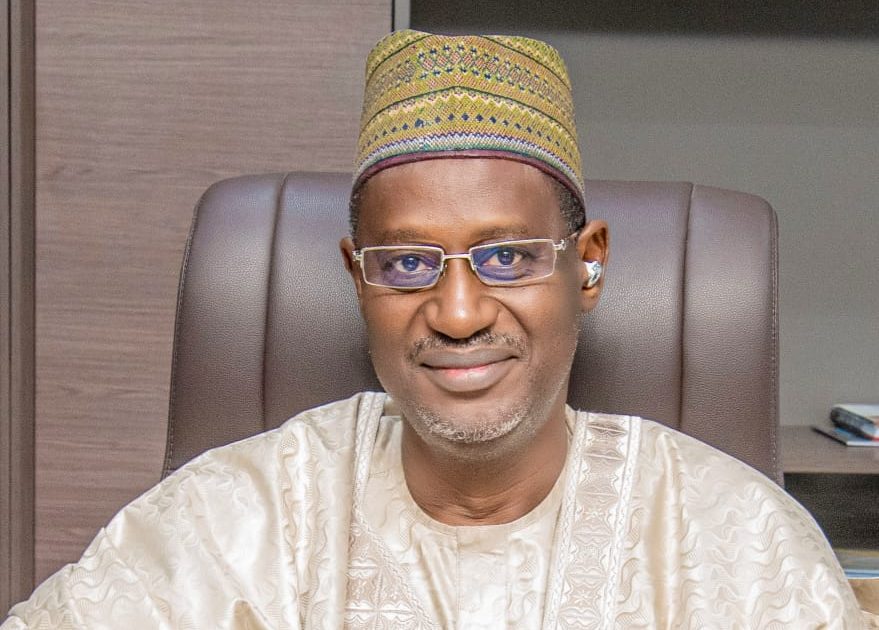Nigeria’s housing deficit, a staggering 28 million units short of the required housing stock, presents a dual challenge and opportunity. This deficit isn’t merely a problem to be solved, but a vast and largely untapped market ripe for investment and innovation. Minister of Housing and Urban Development, Ahmed Dangiwa, has positioned this deficit as a clarion call to both domestic and international investors, emphasizing the potential for significant returns while contributing to a critical national development need. The scale of the deficit, coupled with Nigeria’s burgeoning population and rapid urbanization, translates into a sustained demand for housing, offering a compelling case for long-term investment stability and growth within the sector. Dangiwa’s message underscores the government’s commitment to fostering public-private partnerships and implementing strategic initiatives to transform this challenge into a catalyst for economic growth and social progress.
The Nigerian government’s strategy to combat the housing deficit is multifaceted, encompassing programs aimed at various income levels and incorporating both direct construction and facilitation of access to housing finance. The cornerstone initiative, the Renewed Hope Cities and Estates Programme, seeks to deliver 100,000 housing units in its initial phase, catering to a spectrum of affordability needs, from low- and middle-income housing to high-end residences. This approach signifies a recognition that the housing deficit affects various segments of the population and requires a diversified response. The ambitious target of constructing 500,000 housing units annually for the next decade underscores the urgency and magnitude of the endeavor, aiming to aggressively bridge the existing gap and keep pace with future population growth and demand. This ambitious target necessitates significant investment and calls for robust partnerships between the government and private sector stakeholders.
Affordability stands as a central pillar of Nigeria’s housing agenda. Recognizing that simply building houses isn’t enough, the government is actively working to make these homes accessible to a wider range of citizens. The Federal Mortgage Bank of Nigeria plays a crucial role in this strategy, offering mortgage loans and rent-to-own options to prospective homeowners. These financing mechanisms aim to empower individuals and families to achieve homeownership, fostering a sense of stability and contributing to broader economic empowerment. By facilitating access to affordable financing, the government is not only addressing the housing shortage but also promoting financial inclusion and creating a pathway to asset ownership for a larger segment of the population.
Beyond financing initiatives, the government is tackling the issue of construction costs by promoting local production of building materials. The plan to establish building materials manufacturing hubs across Nigeria’s six geopolitical zones represents a strategic move to reduce reliance on costly imports. This initiative promises a ripple effect of positive impacts, not only lowering construction costs but also stimulating local industries, creating jobs, and boosting economic activity in various regions. By fostering a robust domestic building materials industry, the government aims to create a sustainable and cost-effective supply chain for the housing sector, thereby enhancing the feasibility of large-scale housing projects.
Social housing also forms a key component of the government’s comprehensive housing strategy. The ambitious plan to deliver 100,000 social housing units across Nigeria’s 774 local government areas demonstrates a commitment to addressing the housing needs of the most vulnerable populations. This initiative aims to provide safe and affordable housing to those who are often marginalized and excluded from the formal housing market. By prioritizing social housing, the government is taking a crucial step towards ensuring equitable access to decent living conditions and fostering social inclusion. This focus on social housing complements the broader housing strategy, ensuring that the benefits of increased housing development reach all segments of society.
The Nigerian government is actively seeking international collaboration to accelerate progress in addressing the housing deficit. Minister Dangiwa’s appeal to global developers and housing finance institutions underscores the importance of partnerships in achieving the ambitious housing targets. The government is offering attractive incentives to entice foreign investment, including access to land, bankable offtake guarantees, and other concessions. This proactive approach to attracting international partners demonstrates a commitment to creating a mutually beneficial environment for collaboration, leveraging global expertise and capital to drive the growth of Nigeria’s housing sector. By fostering these partnerships, the government aims to not only address the housing deficit but also to stimulate economic development and create a vibrant and sustainable housing ecosystem.


